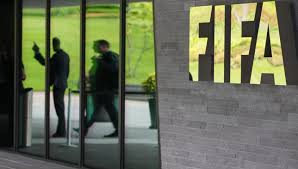By David Owen
March 20 – FIFA has given itself permission to invest in equities as part of its asset management operations.
The disclosure is made in the governing body’s newly-published annual report. FIFA says the Council approved updated financial asset management regulations last October. The agenda for the Council meeting in Kigali was particularly crowded, however, with most attention focusing on the controversial plan for an expanded Club World Cup and worldwide Nations League. A long media release, dated October 26, covers a lot of ground, but makes no mention of these updated regulations.
According to the financial report, FIFA may now put a maximum of 5% of its total investment portfolio into equities.
As at December 31, the fair value of this portfolio was put at $3.621 billion. This implies that FIFA may be on the hunt for as much as $180 million worth of equities to put its money into in a programme that may already have started. The report notes, nonetheless, that to “mitigate the timing risk, the implementation will be spread over several months”.
No reason for the change of approach is given, with FIFA’s overriding investment objective said to remain the “preservation of the real value of FIFA’s financial assets”. Equities are generally viewed as a higher risk, higher reward asset class than money market instruments and government and corporate bonds because, unlike debt, there is no obligation eventually to repay the capital invested.
In 2018, FIFA said, its portfolio “ultimately…performed well against its overriding investment objective” in a challenging investment climate with volatile markets.
Investments were “managed to avoid losses from the rising yield environment” and “benefited from the overall interest rate levels”. FIFA maintained a portfolio of “very sound counterparties”, with the average credit rating kept “well above the minimum allowed”.
By “consciously managing the duration of the investment portfolio in a conservative way”, FIFA was able to “minimise the negative impact of the interest rate hike and even compensate for it through the use of currency markets in conjunction with fixed-rate investments”. Yield was put at 1.95% above benchmark on a mark-to-market basis.
Contact the writer of this story at moc.l1751480403labto1751480403ofdlr1751480403owedi1751480403sni@n1751480403ewo.d1751480403ivad1751480403

